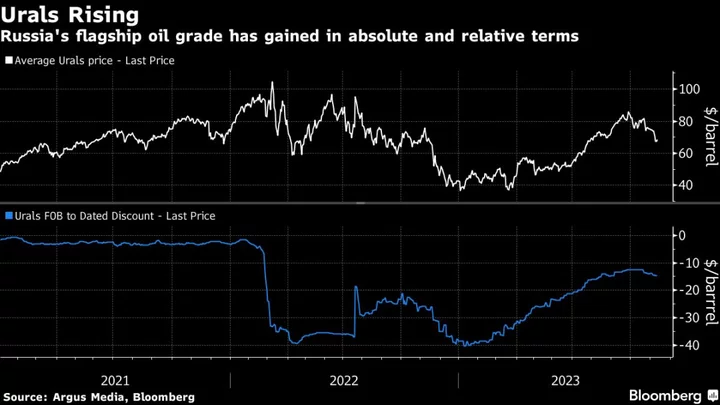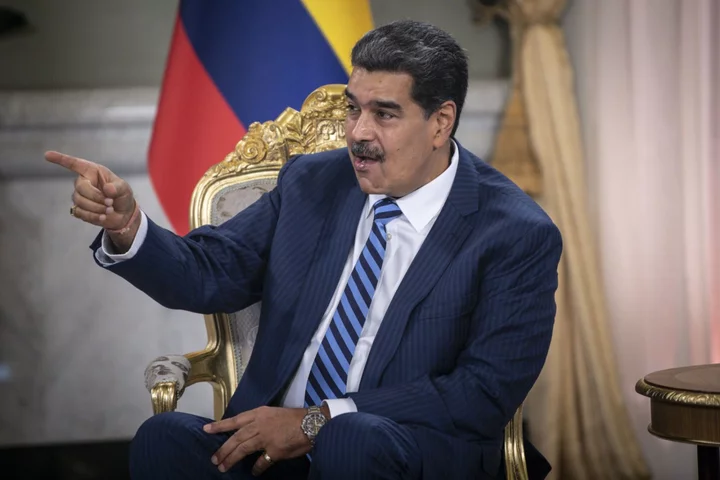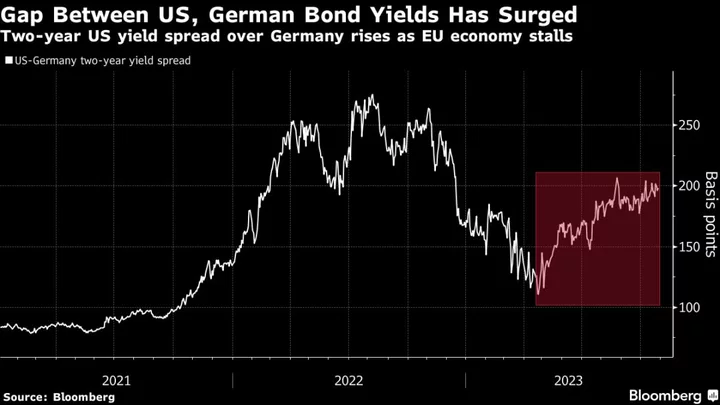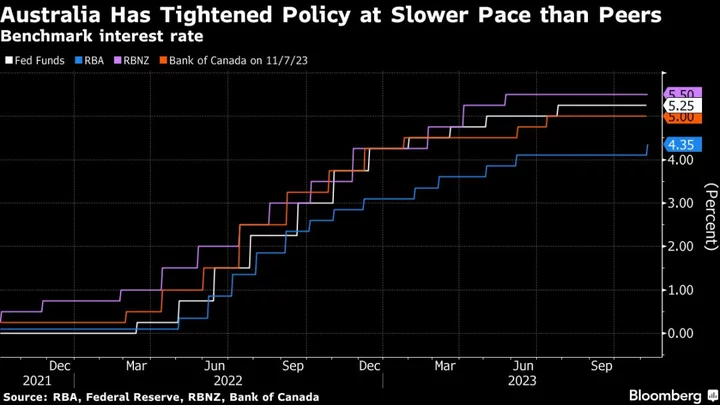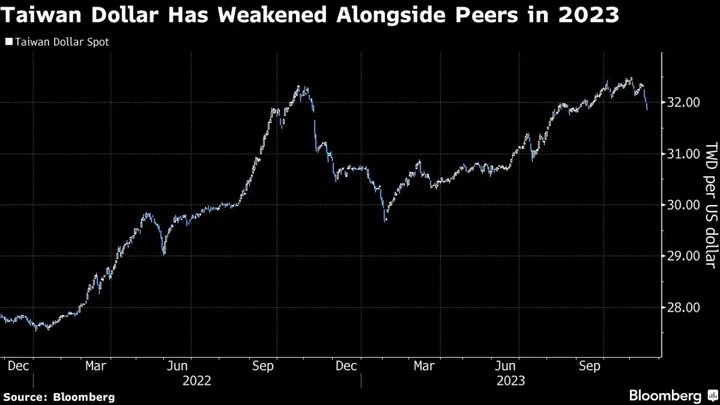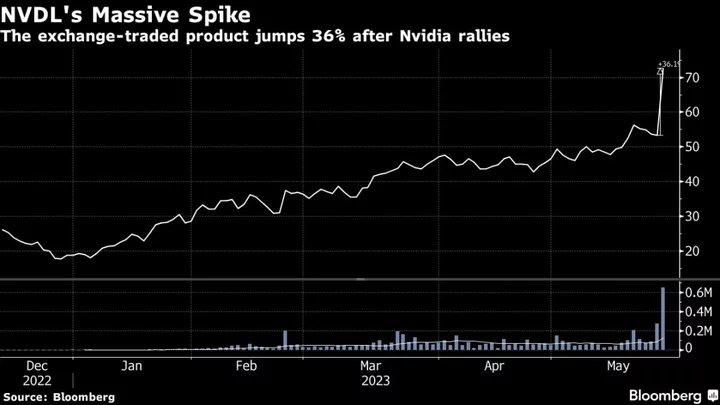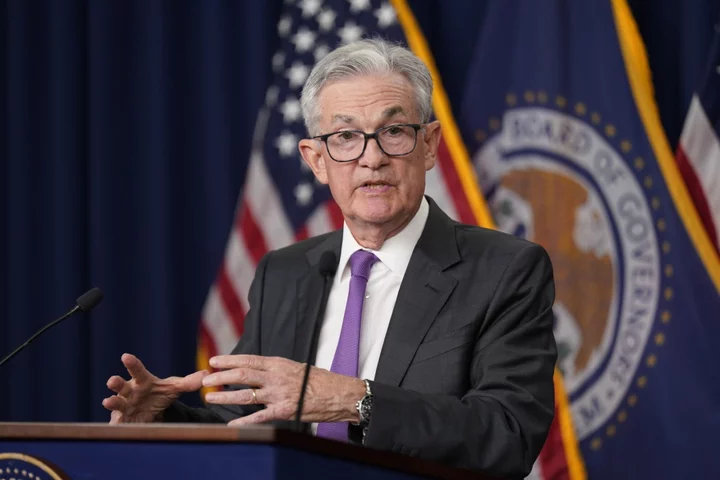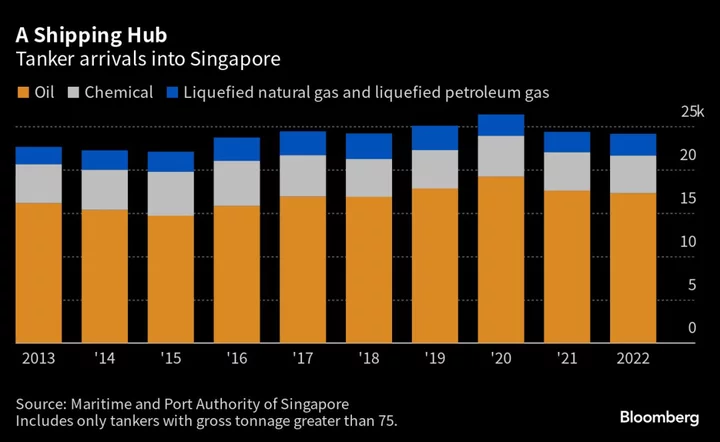The west’s sanctions on Russian oil exports are failing to deprive the Kremlin of revenue to fund its war in Ukraine, meaning the measures are not succeeding in one of their principal objectives.
Whether in dollars or rubles, net or gross, Russian Finance Ministry data show that the money flooding into government coffers has been grinding higher for months now.
The figures beg the question as to whether Group of Seven nations, especially the US and Europe, will need to take more aggressive action if they really want to deprive Moscow of petrodollars.
Their key tool for curbing that funding was a price cap that prevented western firms from helping in the transport of Russian oil if it cost more than $60 a barrel. But one study this week showed that almost every seaborne cargo breached the threshold last month.
Gross revenues from three main tax sources of petrodollars nearly doubled between April and October, coming to more than $13 billion last month, Bloomberg calculations based on the Finance Ministry’s data show. The October earnings exceeded those for any single month in 2021, before the invasion of Ukraine caused unprecedented volatility to the nation’s exports.
Even after deducting sizable subsidy payments to the country’s oil refining industry, which jumped to $2 billion - $3 billion in August and September, a surge is clear. In October, the Russian refiners didn’t receive any subsidies for domestic fuel supplies, which contributed to a substantial jump in Russia’s net oil earnings for the month.
A spokesperson for the US Treasury Department said that while the first phase of the price cap focused on reducing the amount of revenue Russia gains from its oil sales, the second phase of the measure will focus on increasing the costs Russia has to pay to keep its fleet of tankers running.
To do that, the department has begun to sanction shipping companies and vessels it says have transported oil sold above the cap and started to look for ways to increase the costs to Russia for using its shadow fleet.
Initial Blow
In December last year, the European Union all but halted seaborne purchases of Russian oil and simultaneously joined others in the G-7 in imposing a price cap on the country’s exports.
While the initial blow led to a $25-billion deficit in the Russian budget at the start of the year, the effects have faded dramatically.
To counteract the west’s restrictions, Russia pivoted away from western shipping and services. It has done so by using a vast shadow fleet of tankers that have unclear ownership and insurance status.
Privately, European Union officials acknowledge that the price cap isn’t working well. Back in September, US Treasury Secretary Janet Yellen admitted the approach was losing its sting.
Ruble Revenue
For the Russian government, what matters is revenue and expenditure in ruble terms.
That dictates how easily the country can fund its budgetary expenses, including massive military spending because of the war with Ukraine, and swelling social obligations before presidential elections in March. And there, the news is no better for the west.
The three main levies are an oil output tax, an export duty on crude and fuels, and a profit-based tax that partly replaced a production tax for some fields. Revenue from those rose to 1.2 trillion rubles in October, the highest since April 2022. It also exceeded any single month in 2021.
The increase in Russia’s revenues comes as the price of the nation’s barrels has been growing both in absolute terms and relative to the international Brent benchmark. A sharp depreciation of the ruble in the recent months also helped boost revenues from oil sales denominated in foreign currencies.
The G-7’s price cap prohibited western firms from providing shipping, insurance and other services for Russian oil sold above $60 a barrel. In early 2022, the discount of the nation’s crude to Brent widened to a historic high of more than $34 per barrel, according to data from Russia’s Finance Ministry.
Diminishing Discount
As customers — particularly in China and India — became accustomed to using the shadow fleet, the discounts between Russia’s flagship grade Urals and international prices narrowed. It is now closer to $10 a barrel, with Russia expecting the gap to narrow further by about $5.
As part of its pivot toward trying to boost Russia’s costs, the US Treasury recently sanctioned five tankers for breaching the price cap. It has also written to ship-management companies asking them for information regarding about 100 tankers that moved Russian oil. It’s not clear if the measures will do anything to dim the shadow-fleet trade in oil.
The European Union is also trying to make it harder for tankers that are beneficially owned by Europeans to be sold into the shadow fleet. That could ensnare parts of the Greek fleet, even if large numbers of vessels have already switched over.
Almost 30% of Russian oil shipments had some sort of involvement of a G-7 entity in October, according to data compiled the KSE Institute, which is part of a Ukrainian organization that’s pushing for stiffer sanctions on Moscow.
According to a detailed analysis of exports, almost all Russian seaborne cargoes were bought above the cap in October, the institute said.
There are still pressures on Russia too.
In a move to cut the budget expenditure and keep more petrodollars, the Russian government tried to halve its subsidy payments to refineries but faced pushback from the industry.
Full-size payouts have been reinstated from October and the refiners will start receiving them from November, which will continue to put pressure on Russia’s net oil revenues, affecting the Kremlin’s financial flexibility.
The US and its allies also argue that their sanctions have had a broader impact on Russia.
The Kremlin spent billions of dollars on its fleet, insurance and the overall “alternative ecosystem to sell oil without G7 involvement,” according to a US Treasury statement last month. “The costs associated with this avoidance keep stacking up,” the Treasury’s Eric Van Nostrand said.
So far, the G-7 has no plans to change the cap, with the European Union considering stricter monitoring of the existing threshold as the alliance is working on the 12th package of sanctions against Russia.
--With assistance from Alberto Nardelli, Julian Lee and Daniel Flatley.

